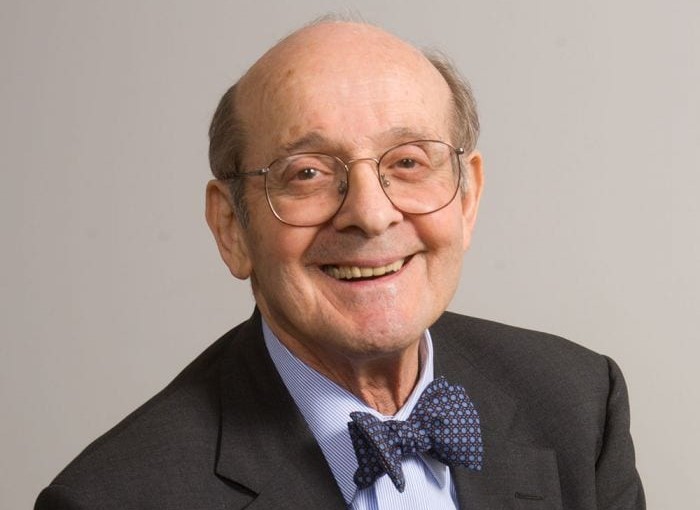The Long Island Daily Press started 200 years ago as the Long Island Farmer—indeed, in 1821, Long Island was a place of agriculture—and it ceased publication on March 25, 1977 before the title was revived in 2003.
It was founded by Henry C. Sleight who was raised in Sag Harbor.
“The Press closes, TODAY’S ISSUE IS THE LAST,” declared the announcement on its front page that day. “It is with great personal sadness and regret that we are forced to announce the closing,” said the piece, written by the editor David Starr. “We are proud that it has been a good and respected newspaper that cared about the interests of its readers. We are proud that it has been a leader in many campaigns to improve our schools, to build colleges, to protect the civil rights of citizens, to create parks, to enhance the arts, to nurture wildlife, to elect the best people to public office.”
That very much mirrored Starr’s views.
Dave was the editor of the Long Island Daily Press from 1969 to 1977, managing editor from 1962 to 1969.
He hired me as a reporter in 1964. And, a month before the newspaper went under, he tipped me off that it was going down. Indeed, I only learned officially of the demise of the newspaper driving past The Whalebone, a store ironically in Sag Harbor, where that last issue was posted on its newsstand.
Dave, who died in 2019 at 96, came to the Long Island Daily Press as a copyboy in 1939 when he was 17.
“It was the luckiest break in my life,” he would later say.
He was hired by Norman Newhouse, a younger brother of S.I. Newhouse, the founder of Advance Publications.
Dave grew up in Brooklyn and Queens. He was the youngest of eight children of immigrants from Poland. As was reported in an article in The Republican, the Newhouse newspaper in Springfield, Mass. that Dave went to as publisher after The Press folded, “he sat ‘on a little stool’ at his father’s candy store and ‘I’d read every paper we had…I intended to be a newspaperman literally in the fifth grade.”
In Army intelligence in World War II, he was in a unit which “got to arrest the chief judge of the Austrian court system, several mayors and high-level Nazi bureaucrats,” noted The Republican piece. “His biggest arrest was Pierre Laval, the Nazi sympathizer wartime premier of France.”
“It was an enjoyable job for a Jew from New York City,” said Starr.
After the war, he returned to the Press as a reporter, covering the police beat, and became a rewrite man and copy editor.
“Norman sort of adopted me,” said Dave.
Dave was also the national editor for decades for all the Newhouse newspapers—thus being one of the most powerful editors in the U.S.
Dave hired me to cover cops-and-courts at the Press and, in 1969, I was advanced to writing a weekly column in its Sunday edition and also did investigative reporting.
A criticism of Dave through the years was his being quite the civic booster. As he explained in The Republican article: “Many editors are uncomfortable with the thought of participation. They do not want to be—and they certainly should not be—mere promoters. But it’s my thesis that once an editor has examined the problem and decided that the proposed solution is a good one, then he does not lose his editorial prerogative by joining the effort.”
I corresponded with Dave in his later years and he was delighted that in 1978, the year after the Press folded, I began as a professor of journalism at SUNY/College at Old Westbury. He related how he “worked with the Rockefeller people” in the establishment of SUNY/Old Westbury. Nelson Rockefeller was New York’s governor. Dave’s involvement in education included being a trustee of Nassau Community College and also the State University of New York.
In February 1977 I went to Jamaica, where the Press was based, after months of hearing rumors from old hands at the newspaper, victims of the closings of other papers, about the possibility of it shuttering. I told Dave about what I was hearing. I said I’d stay if the Press were to continue. He asked me to shut the doors of his office and asked me “not to tell the people out there,” but it might be wise to depart. Then, just a few weeks later I saw that last edition.
Dave, as The Republican reported, “was a charming man who loved newspapering, bow ties, birdwatching, fine food, wine, classical music, the arts and, above all, his wife and college sweetheart, Peggy. They were married for 76 years.” She passed away last year.
Got a story about the Long Island Press that you’d like to share to help us celebrate our bicentennial? Email tbolger@longislandpress.com
Sign up for Long Island Press’ email newsletters here. Sign up for home delivery of Long Island Press here. Sign up for discounts by becoming a Long Island Press community partner here.































